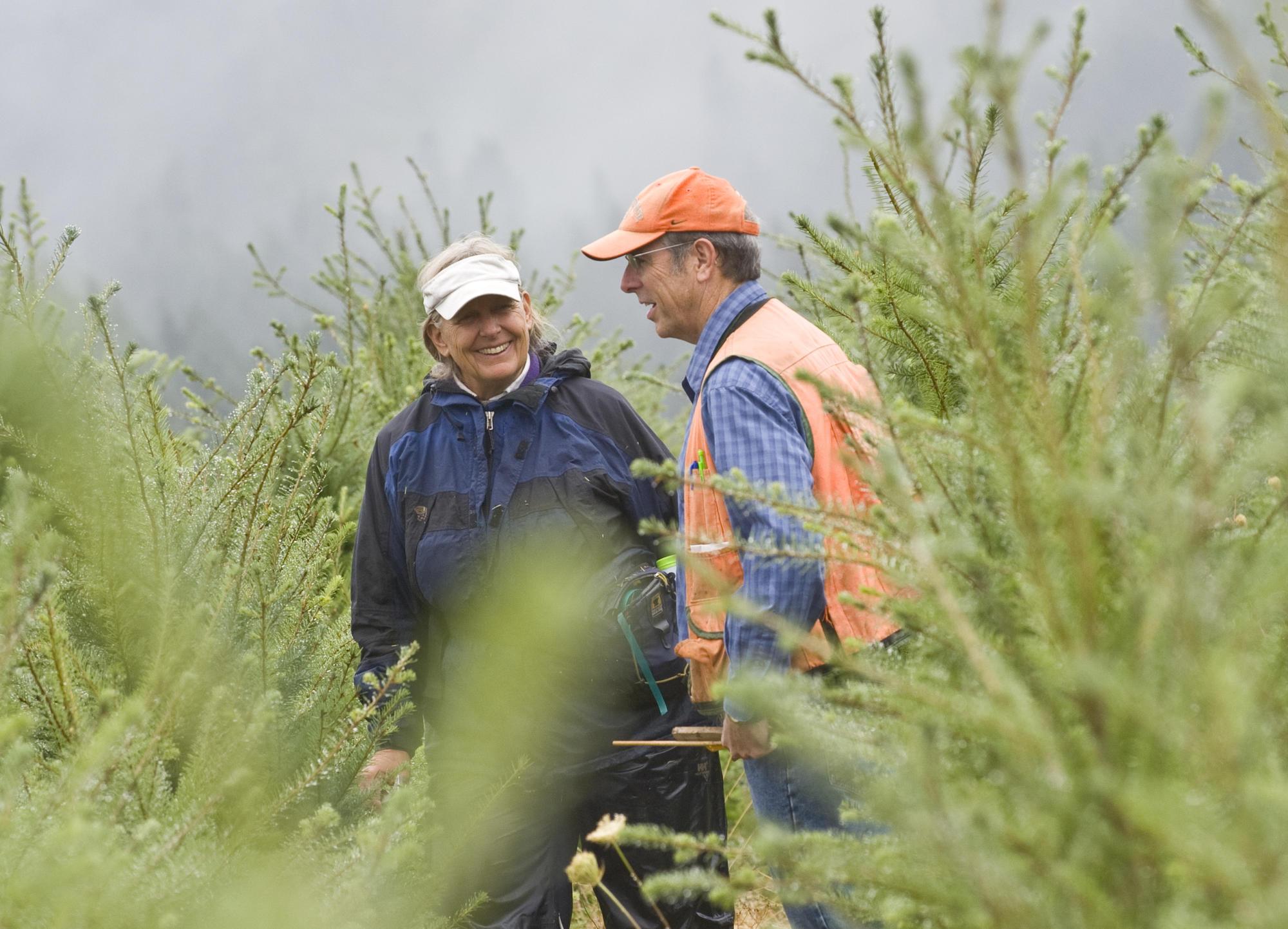Consulting foresters work for you to provide forest management services, including the development of management plans, marking and administration of timber sales, forest management recommendations and many other services. A consulting forester should serve landowners in the manner of a fiduciary, putting the landowner’s interests first and acting independently of forest products firms and logging companies. As a professional consultant, a consulting forester should work with you to meet your goals while adhering to all relevant regulations.
A good consulting forester manages forests daily and has relationships with loggers, log buyers, tree planters and herbicide applicators. These relationships help the forester meet your goals and ensure the work is carried out to high standards. An experienced consulting forester can generate better financial returns, enhance the long-term value of your forest, and help you attain your management objectives.
To find the right consultant, ask candidates questions about their approach to your specific needs. The questions below are not the only questions you could ask and should not replace trusted relationships or “gut feelings.” These questions are meant to help you think through what to ask and what the contractors’ responses mean.
Questions to ask potential consulting foresters
What are your qualifications?
Consulting foresters can come from many different backgrounds. Look for one who has training and experience as a consultant and is familiar with the best forestry practices in your area. This training may be formal (a college degree in forestry) or informal (many years working with an experienced forester). Look for a consulting forester who is familiar with any recent regulatory changes and forestry practices and has invested in new technologies that improve accuracy and efficiency.
Do you hold a professional certification?
Consulting foresters are not required to hold professional certifications in the state of Oregon. However, members of the Association of Consulting Foresters must meet requirements that are similar to certification. For example, they must have a minimum of five years of experience in forest management and must adhere to a code of ethics. Any consulting forester who violates the code can have their membership in the association canceled.
Members of the Society of American Foresters must pass knowledge exams and take continuing education to earn a Certified Forester designation. Members of the society must also adhere to a code of ethics. There are outstanding foresters who are not members of the consulting foresters association and do not hold a Certified Forester designation. However, these credentials can help you identify consultants who have met established professional standards.
What services do you provide?
The consulting forester’s services depend on the individual’s training and experience. Many consultants provide forest management advice and produce forest management plans. Most also assist with timber cruises and sales. This may include developing the sale contract, working with the logger, marking leave trees and boundaries, log marketing, supervision of the harvest, written plans and notifications, and reforestation. Some consulting foresters assist with taxes, appraisals and conservation easements. The forester must be willing to work with you to find the needed expertise if the job exceeds their knowledge or ability.
How will I be charged for your services?
With any contracted service, the contractor should clearly describe charging methods up front. Some services will be offered on a flat fee or bid for a defined scope of work. For harvest management work, the consulting forester is often paid on a commission or percentage of log sales income. Many consultants also provide services on an hourly or daily rate, which will vary depending on the level of expertise required.
Will you do an initial consultation?
Most consulting foresters will initially walk your property with you to discuss your property’s needs. This meeting is an opportunity to ensure the consultant has the relevant expertise and is someone with whom you want to work. During this meeting, your consultant should ask about your interests, plans, goals and objectives for your land. A good consultant will have strong communication skills, offer services you need, and develop the foundation for a long-term working relationship.
Do you use a standard written contract?
Some consulting foresters operate without a written contract when they have an established relationship with the landowner. However, it is best to have a written contract that specifies the responsibilities of both parties in the transaction. The agreement is legally binding and protects both parties from painful misunderstandings and costly disputes.
Do you have the appropriate insurance coverage?
Before you sign a contract, ask to see the forester’s certificates of coverage. You want to ensure you are financially protected if something were to go wrong during the contracted work.
Can I speak with some of your clients with similar property and goals?
A consultant should be willing and able to provide you with references; find out how these current and past clients feel about the forester.
Where to look for a consulting forester
The list of individuals and firms who can provide service as a consulting forester is constantly changing. However, places where you can look to find a list of potential consulting foresters include::
- Association of Consulting Foresters
- Society of American Foresters
- Ask other landowners for names of consulting foresters they work with and trust.
- Ask a forester.


